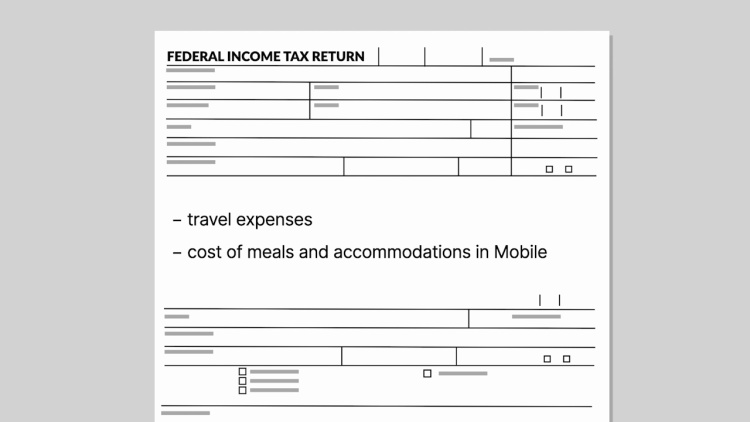Commissioner v. Flowers
Unites States Supreme Court
326 U.S. 465 (1945)

- Written by Robert Taylor, JD
Facts
Mr. Flowers (plaintiff), an attorney, resided in Jackson, Mississippi. Flowers accepted a position as general counsel for Gulf, Mobile & Ohio Railroad (Railroad), which was headquartered in Mobile, Alabama. Because Flowers wanted to continue residing in Jackson, he set up two offices and regularly traveled from his residence in Jackson to Railroad’s headquarters in Mobile. On Flowers’s federal tax return, he deducted from his gross income the cost of his travel from Jackson to Mobile, as well as the cost of his meals and hotel accommodations in Mobile. The federal tax commissioner (commissioner) (defendant) disallowed Flowers’s tax deductions, determining that the deductions did not meet the requirements of 26 U.S.C. § 162(a)(2). [Editor’s Note: At the time of this case, § 162(a)(2) was codified at § 23(a)(1)(A).] Flowers petitioned the United States Tax Court for a redetermination. The tax court found that Flowers’s travel to and from work in Mobile was no different than a taxpayer choosing to live in one city and commute to work in another. The tax court sustained the commissioner’s determination, holding that Flowers was not away from home when working in Mobile, which was his principal post of business. The court of appeals reversed, finding that the tax court had misconstrued the word “home” under § 162(a)(2) to mean Flowers’s principal post of business. The United States Supreme Court granted certiorari.
Rule of Law
Issue
Holding and Reasoning (Murphy, J.)
Dissent (Rutledge, J.)
What to do next…
Here's why 901,000 law students have relied on our case briefs:
- Written by law professors and practitioners, not other law students. 47,100 briefs, keyed to 994 casebooks. Top-notch customer support.
- The right amount of information, includes the facts, issues, rule of law, holding and reasoning, and any concurrences and dissents.
- Access in your classes, works on your mobile and tablet. Massive library of related video lessons and high quality multiple-choice questions.
- Easy to use, uniform format for every case brief. Written in plain English, not in legalese. Our briefs summarize and simplify; they don’t just repeat the court’s language.





